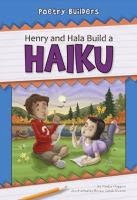Wordless picture books are told entirely through their illustrations — they are books without words, or sometimes just a few words. Sharing wordless books with a child provides an opportunity for literacy-rich conversations. Each "reader" listens and speaks, and creates their own story in their own words. Sharing wordless books also reinforces the idea that the story and the pictures are connected. Elementary-aged students often enjoy writing down their original story to accompany a wordless book.
Below are a few tips for sharing wordless picture books with a child:
- Recognize that there are no "right" or "wrong" ways to read a wordless book. One of the wonderful benefits of using wordless books is how each child creates his own story (or stories!) from the same pictures.
- Spend time looking at the cover and talking about the book's title. Based on those two things, make a few predictions about the story.
- Take a "picture walk" through the pages of the book. Enjoy the illustrations, which are often rich with detail. Look carefully at the expressions on characters' faces, the setting and the use of color. Talk to each other about what you see. These conversations will enrich the storytelling.
- Enjoy the pictures and point out a few things, but don't worry too much about telling a story yet. Just enjoy the pictures and get a sense of what the book is about.
- Go back through the book a second time and get ready for some great storytelling! Consider going first and acting as a model for your child. Ham it up! Have characters use different voices, add sound effects and use interesting words in your version of the book.
- Encourage your child to "read" you the book with his story. Focus on the words your child uses when he tells the story. Help your child expand his sentences or thoughts by encouraging him to add information from the illustration's details. One way to encourage more details is by asking "W" questions: Who? Where? When? Why?
- Finish your wordless book sharing by asking a few simple questions: What pictures helped you tell the story? What was your favorite part of your story? Have you had an experience like the one in your story?
Thanks to Reading Rockets for putting together this article. Check out their website, ReadingRockets.org, for more literacy-related resources.
Here are some books from McMinnville's library collection. Or search on your own for Genre books "Stories without words"
 |
| Cool Cat by Nancy Hogrogian |
 |
| Do You Want to Be My Friend? by Eric Carle |
 |
| The Lion & the Mouse by Jerry Pinkney |
 |
| Pancakes for Breakfast by Tomie DePaola |





